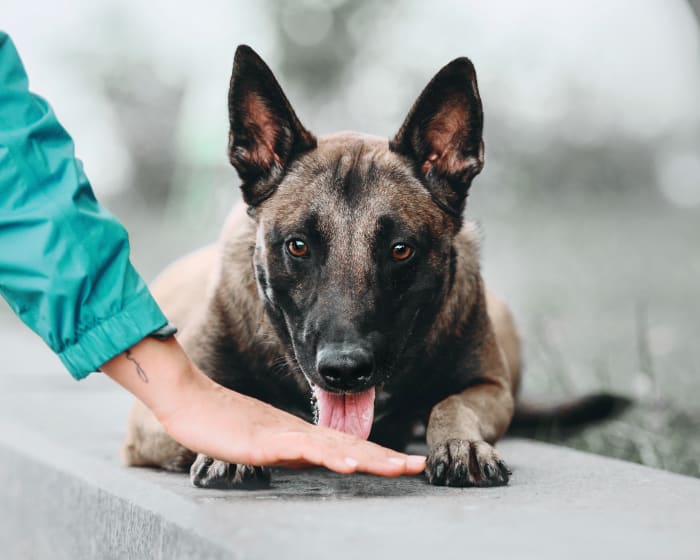What are soft tissue surgery procedures?
Soft tissue surgery covers most surgical procedures that are not classified under orthopedic surgery.
We offer soft tissue surgery procedures for cats and dogs suffering from ear, nose, and throat disorders, in addition to, urogenital, gastrointestinal, oncological, and skin disorders.
For advanced cases, we work with a board-certified surgeon at our O'Fallon location.

Common Types of Soft Tissue Procedures at Animal Emergency Clinic
These surgeries are the most common soft tissue procedures our experienced veterinarians perform at our animal hospital.
Bladder Stones
Your pet may be suffering from bladder stones if they are drinking more water than usual, having accidents in the house or asking to go outside more frequently.
In some cases, surgery may be recommended to remove the stones. The bladder will then be flushed to ensure all stones are eliminated. Further preventive care will be required to help prevent stone recurrence following surgery.
Skin Lacerations
Lacerations are created when the body's tissue is cut or torn as a result of a bite, scrape, puncture or cut. They are often jagged and irregularly shaped. Your pet will need surgery to remove dead or infected tissue and repair any recent lacerations if they are deep, extensive or large.
A veterinary surgeon will clean the wound before performing surgery. The specific treatment plan will depend on whether there is any infection. Pain medication will be prescribed following surgery, and your pet should wear a plastic cone to keep them from licking the surgical area.
Intestinal Obstruction
If your cat or dog has eaten something they shouldn't—such as toys, bones or rocks—their abdomen or intestines may become blocked.
Emergency surgery will be needed to remove the obstruction, and in some cases, tissue that has been damaged due to the blockage. We will closely monitor your pet for signs of infection following surgery, and provide treatment as required.
Skin Growths or Tumors
Growths or tumors may develop on your pet's skin, and can fall into several categories, including cysts, warts, tags, and more. These may be benign or malignant (cancerous). The surgical procedure required may depend on the type of tumor, its size and location, and your pet's general physical health and condition.
Once the mass has been removed, the veterinary surgeon use sutures to close the incision. Depending on the location of the mass, your pet may need to wear a cone (e-collar) following the procedure to keep them from licking the surgical site. Antibiotics or other medications may also be prescribed.

Soft Tissue Surgery FAQs
- What happens during the consultation appointment?
We will review your pet's medical history and conduct a physical examination during the pre-operative consultation. We will also take appropriate bloodwork and any other diagnostic tests that are required to determine the nature of your pet's condition.
Diagnostic testing can include digital radiology (X-rays), ultrasound, ECG/EKG, and endoscopy. Once we've received the results, we will develop a surgical and treatment plan, and review it with you.
- Do the consultation appointment and surgery happen on the same day?
Yes. Soft tissue surgery is performed by our ER vets as emergencies, and so they generally do happen on the same day. But if it's not an emergency, once diagnostic test results are returned from our lab, we can discuss planning your pet's procedure.
- How long does the surgery take?
Surgeries usually last between two and four hours. The duration depends on the type of surgery being performed and on your pet’s specific condition.
- Does my pet have to stay overnight?
Many of our patients need to stay in the hospital overnight after surgery so that we can monitor them as they recover from the procedure. Depending on the type of surgery that is performed and how quickly they recover after anesthesia and surgery, your pet may be able to go home on the same day.